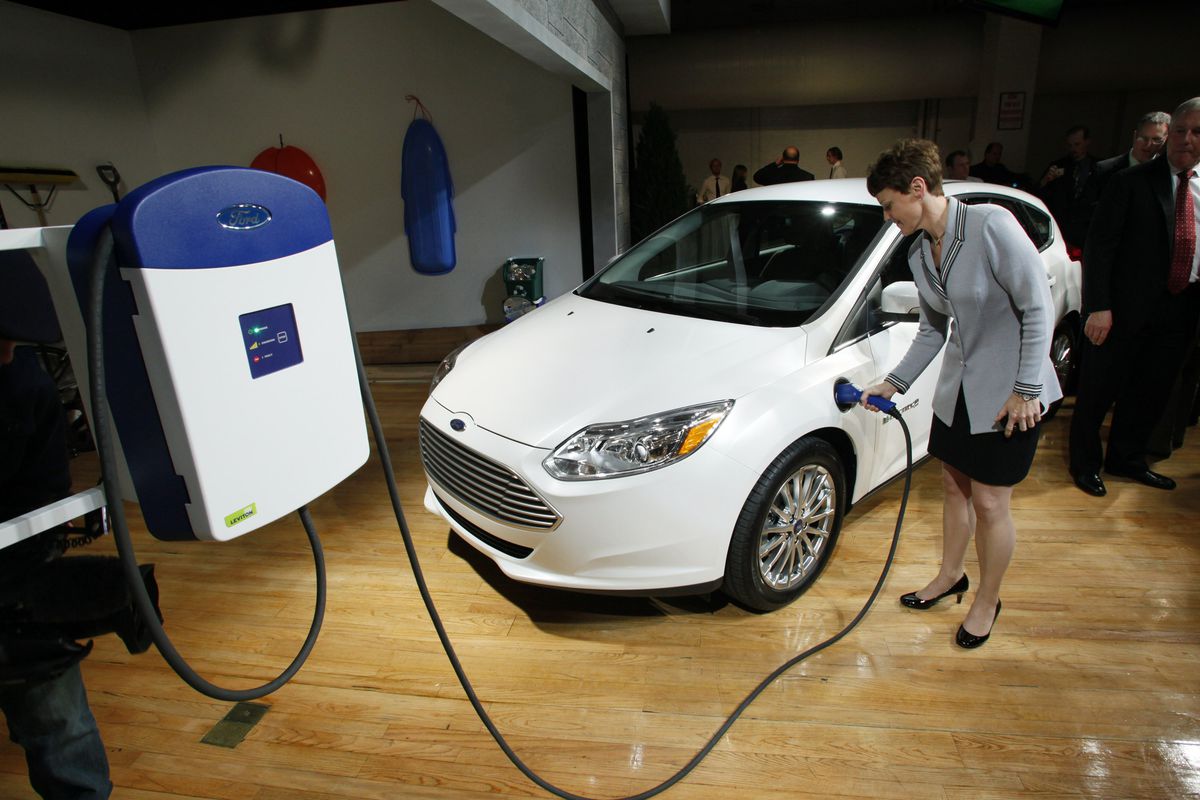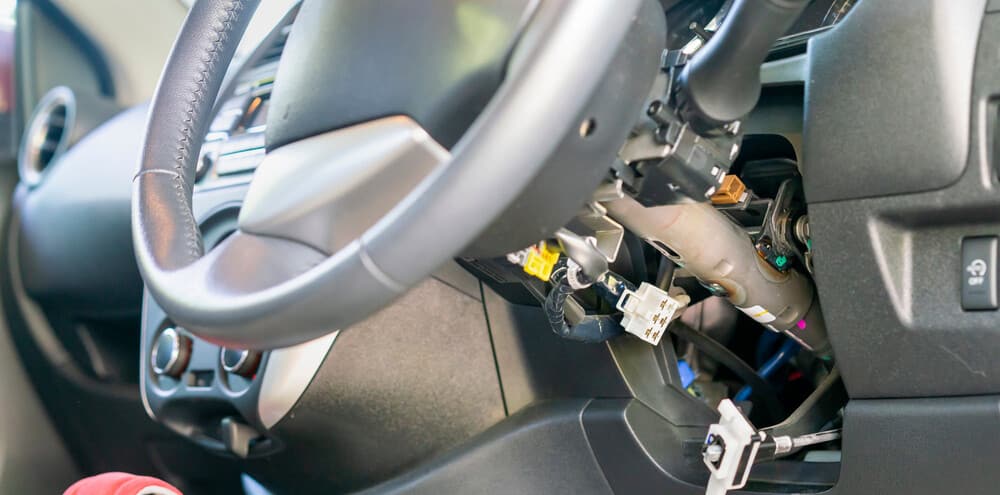Does Enterprise Have Electric Cars

Introduction
Does Enterprise Have Electric Cars: In the rapidly evolving landscape of transportation, the shift towards sustainability has become an imperative. With concerns over environmental degradation and the depletion of finite resources, industries worldwide are embracing eco-friendly alternatives. One such innovation that has gained significant traction is the advent of electric vehicles (EVs). These vehicles, powered by rechargeable batteries, offer a promising solution to mitigate the detrimental effects of traditional gasoline-powered cars on the environment.
As enterprises reassess their operations through a lens of sustainability, the integration of electric cars into corporate fleets emerges as a compelling strategy. Beyond fulfilling environmental responsibilities, adopting electric vehicles presents multifaceted advantages for businesses, ranging from cost savings to enhancing corporate image. However, the journey towards electrification is not devoid of challenges. Enterprises encounter various considerations, including infrastructure requirements, operational efficiency, and financial viability, in their transition to electric mobility.
This essay delves into the question: Does Enterprise Have Electric Cars? Through an exploration of the current landscape, we examine the motivations driving businesses towards electric vehicle adoption, the challenges they encounter, and the strategies employed to navigate this transformative journey. By analyzing the experiences of pioneering enterprises and evaluating industry trends, we aim to provide insights into the role of electric cars in the corporate ecosystem and shed light on the future of sustainable transportation in enterprise environments.
Which car company has electric car?
The EV ecosystem in the country is dominated by major 2- and 3-wheeler, passenger vehicle, and commercial EV brands, including Ampere, Ashok Leyland, Ather Energy, Hero Electric, Hero MotoCorp, Hyundai, Mahindra Electric, MG Motor India, Okinawa Autotech, Ola Electric, Tata Motors, and TVS Motor Company.
Tesla: Pioneering Electric Vehicles
Tesla, founded by Elon Musk, stands out as a trailblazer in the electric car industry. Renowned for its innovative technology and sleek designs, Tesla has become synonymous with electric vehicles (EVs). From the compact Model 3 to the luxurious Model S and the groundbreaking Cybertruck, Tesla offers a diverse range of EVs catering to different preferences and needs. Its cutting-edge autopilot system and over-the-air software updates continually push the boundaries of automotive technology.
Nissan: Leading the Charge in EVs
Nissan, with its Leaf model, has been a frontrunner in the mass adoption of electric vehicles. The Nissan Leaf, introduced in 2010, quickly gained popularity for its affordability and practicality, making electric mobility accessible to a wider audience. With constant improvements in battery technology and range, Nissan continues to innovate in the EV space. Additionally, Nissan’s commitment to sustainability extends beyond its vehicles, with initiatives like vehicle-to-grid integration and partnerships promoting renewable energy adoption.
Does the enterprise need fuel?
Gamma-ray Constellations. The engines of the most famous vessel in the “Star Trek” universe, the USS Enterprise, are powered by the annihilation of matter and antimatter, a process that produces energy in the form of gamma rays.
The Importance of Fuel in Enterprises
Fuel, in the metaphorical sense, is essential for the sustenance and growth of enterprises. Just like a vehicle requires fuel to propel forward, businesses need resources to operate efficiently and achieve their objectives. These resources include capital, human talent, technology, and strategic partnerships. Without adequate fuel, enterprises may struggle to innovate, expand their market presence, or even sustain day-to-day operations. Thus, fuel serves as the lifeblood that powers the engines of enterprise, enabling them to navigate through challenges, capitalize on opportunities, and remain competitive in dynamic market environments.
Fueling Growth and Innovation
Fueling growth and innovation within enterprises necessitates a constant influx of resources and investments. These resources empower businesses to explore new markets, develop cutting-edge products or services, and adapt to changing consumer preferences. Moreover, fueling innovation fosters a culture of creativity and adaptability, allowing enterprises to stay ahead of the curve and seize emerging opportunities. Whether it’s through financial investments, strategic partnerships, or fostering a conducive work environment, enterprises must prioritize fueling their growth and innovation engines to remain relevant and sustainable in today’s fast-paced business landscape.
Why is EV so expensive?
Consumers And Market Discomfort: Why Are EVs Expensive? To answer it simply — batteries. They are the prime reason for expensive electric vehicles in India. When we import batteries, the machinery and technology required therein cost a lot, which altogether costs a fortune for many.
High Production Costs
Electric vehicles (EVs) often carry a hefty price tag due to the high production costs associated with their advanced technology. The most significant expense comes from the battery, which typically makes up a substantial portion of an EV’s total cost. Batteries with enough capacity to provide sufficient range are still expensive to manufacture, despite ongoing advancements in battery technology. Additionally, the materials used in EV batteries, such as lithium and cobalt, can be costly and subject to price fluctuations, further driving up production expenses.
Limited Economies of Scale
Another factor contributing to the high cost of EVs is the limited economies of scale in their production compared to traditional internal combustion engine vehicles. While EV sales are growing, they still represent a smaller portion of the overall automotive market. This means that manufacturers cannot take advantage of the same economies of scale in production and distribution as they can with conventional vehicles. As a result, the costs associated with developing, manufacturing, and marketing EVs are spread over fewer units, leading to higher prices for consumers.
Why will EV fail?
The current report included data on more than 330,000 vehicles made between 2000 to 2023, with a few reports about new 2024 models. EV owners most frequently reported troubles with battery and charging systems, as well as flaws in how the vehicles’ body panels and interior parts fit together.
Lack of Infrastructure
The widespread adoption of electric vehicles (EVs) faces a significant hurdle in infrastructure. While EV technology advances, infrastructure development lags. Inadequate charging stations, especially in rural areas, deter potential buyers. Long charging times exacerbate the issue, making EVs impractical for many daily commuters. Additionally, the strain on existing power grids poses a challenge, requiring substantial investment in grid upgrades to accommodate increased demand. Without robust infrastructure support, EV adoption will remain limited.
High Costs
Another barrier to the success of EVs is their high initial costs. Although prices have gradually decreased, EVs still command a premium compared to traditional combustion engine vehicles. Battery expenses contribute significantly to this cost disparity. Moreover, concerns about battery lifespan and replacement costs further deter buyers. While lower operating costs over time partially offset the initial investment, the upfront expense remains a significant deterrent for many consumers. Until EV prices align more closely with conventional vehicles, widespread adoption will likely stall.
Will EV be cheaper in future?
The cost of batteries is expected to decrease significantly by 2024, making EVs cheaper than petrol and diesel cars. However, in 2024, the prices of EVs may still be higher than petrol and diesel cars, but the difference is expected to reduce.
Technological Advancements
Continual advancements in battery technology and manufacturing processes are expected to drive down the cost of electric vehicles (EVs) in the future. Innovations such as solid-state batteries promise higher energy density and longer lifespan, potentially reducing manufacturing costs and overall vehicle prices. Additionally, improvements in electric motor efficiency and vehicle lightweighting techniques contribute to lowering production expenses, making EVs more affordable for consumers.
Scale of Production
As the demand for EVs grows and automakers invest more heavily in electric vehicle production, economies of scale are anticipated to play a significant role in reducing manufacturing costs. With increased production volumes, manufacturers can negotiate better deals with suppliers, streamline assembly processes, and amortize research and development expenses across a larger number of units. This scale-driven cost reduction is expected to make electric vehicles increasingly competitive with traditional internal combustion engine vehicles in terms of pricing, making them a more attractive option for consumers worldwide.
Which company electric car is best?
The best electric car is the 2023 Chevrolet Bolt, with an overall score of 8.4 out of 10. The best luxury electric car is the 2023 Lucid Air, with an overall score of 8.5 out of 10. What is the best electric SUV? The best electric SUV is the 2024 Hyundai Ioniq 5, with an overall score of 8.4 out of 10.
Tesla: Pioneering Innovation
Tesla, led by Elon Musk, has revolutionized the electric vehicle (EV) industry with its sleek designs, cutting-edge technology, and impressive performance. The Model S, Model 3, Model X, and Model Y have set new standards for EVs, boasting long-range capabilities, rapid acceleration, and advanced autopilot features. Additionally, Tesla’s extensive Supercharger network provides convenient access to fast charging stations worldwide, alleviating range anxiety for drivers. With continuous updates and improvements via over-the-air software updates, Tesla remains at the forefront of innovation in the electric car market.
Chevrolet: Affordable and Reliable
Chevrolet’s electric car lineup, including the Bolt EV and upcoming Bolt EUV, offers a compelling blend of affordability and reliability. With a range surpassing 200 miles, the Bolt EV provides ample mileage for daily commutes and long-distance journeys. Moreover, Chevrolet’s commitment to safety is evident in its suite of driver-assistance features, making the Bolt EV a practical choice for families. Its spacious interior and cargo capacity further enhance its appeal. As Chevrolet continues to expand its electric vehicle offerings, it presents a viable option for consumers seeking a dependable and budget-friendly electric car.
What is the challenge with the electric car?
Electric vehicles are more expensive to build than gasoline-powered ones, primarily because of battery technology. EV batteries must hold a massive charge to provide the minimum range for most owners, requiring expensive raw materials to manufacture.
Battery Technology Limitations
The primary challenge facing electric cars revolves around battery technology limitations. While battery technology has advanced significantly in recent years, it still faces constraints in terms of energy density, charging time, and cost. Current lithium-ion batteries, while efficient, have limitations in terms of range per charge and longevity. Additionally, charging infrastructure remains underdeveloped in many regions, leading to range anxiety among potential buyers. Improving battery technology to increase energy density, reduce charging times, and lower costs is crucial to addressing these challenges and making electric cars more competitive with traditional vehicles.
Environmental Impact of Battery Production
Another challenge associated with electric cars is the environmental impact of battery production. The extraction and processing of materials such as lithium, cobalt, and nickel, which are essential components of electric vehicle batteries, can have significant environmental consequences. Additionally, the manufacturing process itself consumes energy and generates emissions. While electric cars produce fewer emissions during operation compared to internal combustion engine vehicles, the environmental footprint of battery production must be considered. Efforts to mitigate these impacts include increasing recycling rates, sourcing materials responsibly, and investing in cleaner manufacturing processes. Balancing the environmental benefits of electric cars with the challenges of battery production is essential for a sustainable transition to electric mobility.
What are the weaknesses of EV car?
These disadvantages include finding charging stations, charging times, higher initial costs, limited driving range, and battery packs can be expensive to replace.
Battery Limitations
Electric vehicle (EV) technology faces several weaknesses, primarily concerning battery limitations. Range anxiety remains a significant concern for consumers, as even the most advanced batteries offer limited driving distances before requiring lengthy recharge times. Additionally, cold weather can significantly reduce battery performance, impacting range and overall efficiency. The cost of battery replacement also poses a challenge, as it can be a substantial investment for EV owners, potentially outweighing fuel savings over time.
Charging Infrastructure Challenges
Another weakness of EVs lies in the inadequacy of charging infrastructure. Although efforts to expand charging networks are underway, accessibility remains a hurdle, particularly in rural or less densely populated areas. Long charging times compared to refueling conventional vehicles also deter some consumers from transitioning to electric. Moreover, charging station compatibility and standardization issues further complicate the user experience, limiting the convenience and widespread adoption of EVs.
Conclusion
The question of whether enterprises have electric cars is not one that can be answered with a simple yes or no. It’s evident that the adoption of electric vehicles (EVs) within enterprises is steadily increasing, driven by a combination of environmental concerns, technological advancements, and economic incentives. Many enterprises recognize the benefits of transitioning to electric vehicles, including reduced emissions, lower operating costs, and enhanced corporate social responsibility.
However, the extent to which enterprises have electric cars varies greatly depending on factors such as industry, geographical location, and organizational priorities. While some enterprises have fully embraced electric mobility and integrated EVs into their fleets, others may still be in the early stages of considering this transition or facing barriers such as infrastructure limitations or upfront costs.
Nevertheless, the momentum behind electric vehicles is undeniable, with governments, consumers, and businesses alike pushing for a greener transportation future. As technology continues to improve and infrastructure expands, it’s likely that more enterprises will join the electric revolution, further accelerating the shift away from traditional fossil fuel vehicles.








